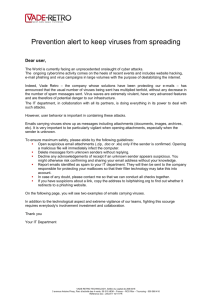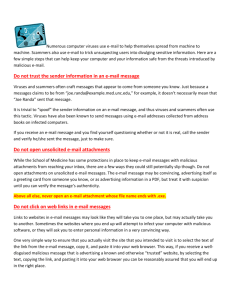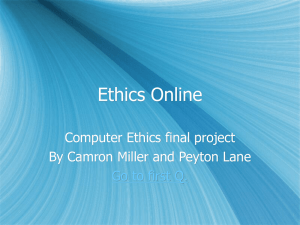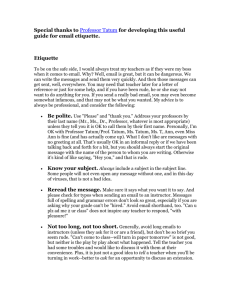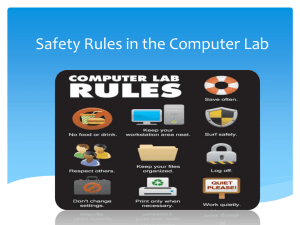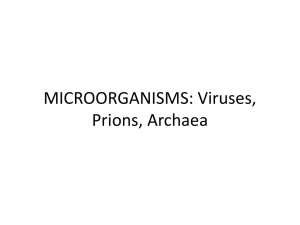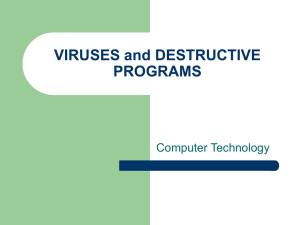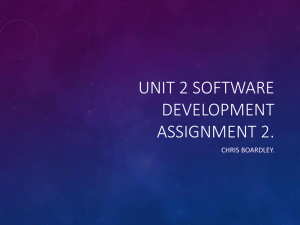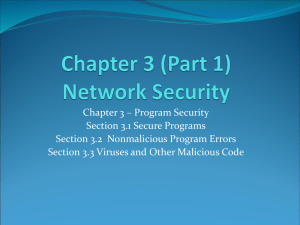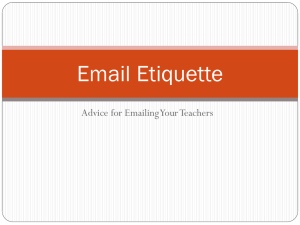l1email - Skills Workshop
advertisement
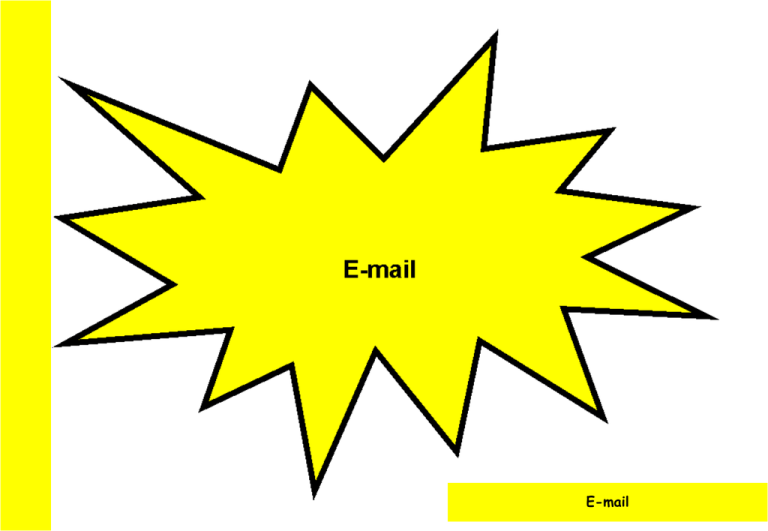
E-mail Introduction to E-mail Welcome to Email. This module will give you the skills you need to send and receive Email. Also to send and receive attachments. E-mail E-mail Accessing E-mail E-mail (electronic mail) is a method of sending messages and attaching files over the Internet. E-mail is the Internet’s version of the postal service and a great way to communicate with people. The best of e-mail is that you can also send a message with attachments. This means you can send text documents, pictures etc. Accessing E-mail 1. Go to www.postmaster.co.uk 2. Enter your Username: rathboneuser1 Enter your Password: userone and click on login E-mail Receiving, Creating & Sending Messages Receiving E-mails •When logged in, enter your Inbox by clicking on it. Then, click on the message you wish to read E-mail Receiving, Creating & Sending Messages Creating a new E-mail 1. Click on compose to create a new e-mail 2. Enter the e-mail address in the ‘to’ box 3. Put a heading in the ‘subject’ box 4. Type your message in the ‘message’ box 5. Click on send email to send the e-mail E-mail Receiving, Creating & Sending Messages Replying to an E-mail 1. Select Reply on the message you have read 2. 3. Type your message in the ‘message’ box. There is no need to enter an email`address or heading Click on send email to send the e-mail E-mail Receiving, Creating & Sending Messages Adding Attachments to an E-mail 1. Click on Browse to attach a file 2. Locate the file you wish to attach and click on Open E-mail Viruses • Viruses can spread through e-mail attachments. Always check attachments for viruses • Opening unknown attachments could cause serious damage to the computer and spread viruses further. Never open unknown attachments! • Always check any attachments you are going to send for viruses. E-mail Viruses • Viruses are small computer programs able to copy themselves and written with the purpose of causing annoyance or destruction. • They can range from simply being a nuisance to deleting files, using up memory or even corrupting the hard drive. • The answer is antivirus software but as virus writers continually change or produce new viruses, the antivirus software must be updated at least monthly and ideally should update itself automatically online. • A virus can gain access to a computer via: 1. A floppy disc or CD 2. A networked machine (2 or more pc’s linked together) 3. The internet – from e-mail, web sites or downloaded files • A virus introduced on a floppy disc will ‘hide’ on the hard drive • It will then copy itself to any other floppy disc put into the machine by attaching itself to a file E-mail
